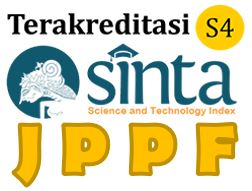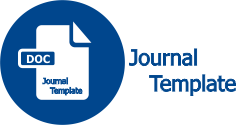Role of Physics Student Worksheet in Facilitating the Student’ Scientific Literacy Skills: A Systematic Literature Review
DOI:
https://doi.org/10.24036/jppf.v11i2.31Keywords:
LKPD, scientific skills, physics learning, literature reviewAbstract
This study aims to systematically analyze the role of Student Worksheets in facilitating the improvement of students’ scientific skills. Student worksheets serve as an instructional medium that encourages students to engage actively in the process of observation, experimentation, and reasoning to develop scientific literacy. Using a systematic literature review approach, this research examined 15 articles published in SINTA-indexed national journals between 2015 and 2025. The review process involved identifying, selecting, and analyzing articles that focused on the development or implementation of student worksheets to enhance students’ scientific skills. Data were analyzed descriptively and thematically to identify trends, models, and outcomes from previous studies. The findings reveal that most student worksheets were developed using active learning models, such as Problem-Based Learning (PBL), Guided Inquiry, Learning Cycle 5E, STEM, and Ethnoscience, all of which have been proven valid, practical, and effective in improving students’ reasoning, analytical thinking, and inquiry abilities. The integration of digital and contextual elements further supports engagement and aligns with 21st-century learning competencies. Therefore, student worksheets can be regarded as an effective educational tool to strengthen students’ scientific skills and promote inquiry-based learning in various scientific contexts.
Downloads
References
Aisyah, T. D. (2025). The Effect of the Problem-Based Learning Model (PBL) with E-worksheet Assisted by PhET Simulation Media on the Learning Outcomes of Grade XI Students of SMA Batik 2 Surakarta on Reaction Rate Material.
Aksari, V., Budhi, W., & Hasanah, D. (2021). The development of E-LKPD physics based on guided inquiry on straight motion materials for Class X high school students. Journal of Physics Education Research and Studies, 8(1), 43.
Andriana, E., Fauzany, P. S. D., & Alamsyah, T. P. (2022). 21st century multimedia innovation: Development of e-lkpd based on scientific inquiry in science class. Journal of Innovation in Educational and Cultural Research, 3(4), 731-736.
Asfiyah, H., & Admoko, S. (2025). Development of LKPD Learning Cycle 5e Learning Model on Dynamic Fluid Materials to improve students' scientific argumentation skills. Physics Education Innovation, 14(1), 17–24. https://doi.org/10.26740/ipf.v14n1.p17-24
Dalimunthe, K. N., & Anas, N. (2024). Development of LKPD Based on Scientific Thinking in Science Subject Sound Properties in Elementary / MI. Didactics: Journal of Education, 13 (4 November), 4591-4602.
Ernawati, T., & Sujatmika, S. (2021). Development of worksheet based on scientific approach to improve critical thinking skills. International Journal of STEM Education for Sustainability, 1(1), 1-10.
Harahap, R. H., Sudarma, T. F., Novika, S., & Festiyed, F. (2025). Effectiveness and Innovation of Problem-Based Learning in Physics Learning in a Decade: A Literature Analysis of Critical Thinking Development. Journal of Eduscience, 12(3), 813-825.
Judijanto, L., Abdullah, G., Asshagab, S. M., Darwis, R., Setyaningrum, S., Wiliyanti, V., Busra, S. (2025). Science Learning: Theory and Practice. PT. Sonpedia Publishing Indonesia.
Mahjatia, N., Susilowati, E., & Miriam, S. (2021). The development of STEM-based LKPDs to train students' science process skills through guided inquiry. Scientific Journal of Physics Education, 4(3), 139.
Muliani, M., Hasmi Br Lembong, Halimatus Sakdiah, Nuraini Fatmi, & Nanda Novita. (2025). Development of Ethnoscience-Based Physics LKPD to Improve Students' Cognitive Learning Outcomes on Sound Wave Materials. Indo-MathEdu Intellectuals Journal, 6(1), 239–250. https://doi.org/10.54373/imeij.v6i1.2395
Nadhif, N. H., & Thohir, M. A. (2025). The Influence of Pjbl Based on Local Wisdom of Knowing Piety on Science Process Skills Reviewed from Learning Style. Elementary School Vehicles, 33(1), 46-69.
Nahak, R. L., & Bulu, V. R. (2020). The Effectiveness of the Scientific-Based Worksheet-Assisted Guided Inquiry Learning Model on Student Learning Outcomes. Journal of Education: Journal of Research and Literature Review in the Field of Education, Teaching, and Learning, 6(2), 230–237. https://doi.org/10.33394/jk.v6i2.2369
Nazira, N. K., Idris, S., Widya, W., Novita, N., & Setiawan, T. (2024). Development of PBL-Based Physics LKPD to Improve Students' Understanding of Concepts on Straight General Materials. Optical Journal of Physics Education, 8(1), 118–127.
Novrianti, F., & Hunaidah, M. (2024). Development of LKPD CinQASE Learning Model Assisted by Flip Pdf Professional to Improve Critical Thinking Skills and Student Learning Outcomes on Elasticity and Law Material Hooke High School/MA Class XI. Journal of Physics Education Research, 9(2), 100-107.
Okfitasari, L. W., Roesminingsih, M. V., & Suhanadji. (2020). Development of Connected Type Integrated Model Worksheets (LKPD) Based on Scientific Approaches to Improve Student Learning Outcomes. Journal of Chemistry Education and Learning, 9(1), 88–103. https://doi.org/10.23960/jpk.v9.i1.202008
Pranata, O. D. (2025). Students' Data Collection, Graph-Making, and Conclusion-Making Skills in Inquiry-based Learning Using Interactive Simulations. META: Journal of Science and Technological Education, 4(1), 15-27.
Rahmatin, J. A., Juliana, D., Selvia, Hikmawati, H., & Rokhmat, J. (2022). Student Worksheet (LKPD) with the Context of Local Wisdom in Physics Learning. Journal of Education, Science, Geology, and Geophysics (GeoScienceEd Journal), 3(2), 16–22. https://doi.org/10.29303/goescienceedu.v3i2.191
Rahmawati, I. M. N., & Dwiningsih, K. (2024). Implementation of Problem-Based Learning-Stem-Based Colloid E-Lkpd in Colloidal System Materials to Improve Critical Thinking Skills and Student Learning Outcomes. UNESA Journal of Chemical Education, 13(3), 199-204.
Ramadhani, A., & Andriani, N. (2024). Analysis of the Needs of Problem-Based Learning Based on LKPD Development on Motion and Style Materials at SMP Negeri 8 Lahat. OPTICS: Journal of Physics Education, 8(2), 372-381. https://doi.org/10.37478/optika.v8i2.4600
Risamasu, P., & Pieter, J. (2024). Development of Problem-Based Learning Based E-LKPD to Improve Students' Problem-Solving Skills. Journal of Physics Education Undiksha, 14(1), 443-453.
Syahgiah, L., ZAN, A. M., & Asrizal, A. (2023). Effects of inquiry learning on students' science process skills and critical thinking: A meta-analysis. Journal of Innovative Physics Teaching, 1(1), 16-28.
Sulistiyo, M. A. S., & Wijaya, A. (2020, July). The effectiveness of inquiry-based learning on computational thinking skills and self-efficacy of high school students. In Journal of Physics: Conference Series (Vol. 1581, No. 1, p. 012046). IOP Publishing.
Sutiani, A. (2021). Implementation of an inquiry learning model with science literacy to improve student critical thinking skills. International Journal of Instruction, 14(2), 117-138.
Ulina, S., & Jubaidah, J. (2025). Development of STEM-based LKPD to improve students' critical thinking skills in dynamic fluid materials. Schrodinger Scientific Journal of Physics Education Students, 6(1).
Verawati, N. N. S. P., Rokhmat, J., Harjono, A., Makhrus, M., & Sukarso, A. S. (2025). Integrating Ethnoscience-PBL and Virtual Technology to Improve Critical Thinking Skills: A Literature Review and Model Design. TEM Journal, 14(2).
Wahono, R. H. J., Supeno, S., & Sutomo, M. (2022). Development of E-LKPD with a Scientific Approach to Improve Critical Thinking Skills of Elementary School Students in Science Learning. Journal of Basicedu, 6(5), 8331–8340. https://doi.org/10.31004/basicedu.v6i5.3743
Walidah, M., Evendi, & Rahmatan, H. 2023. The application of ethnoscience-based student worksheets to improve learning outcomes at SMP Negeri 8 Banda Aceh. Indonesian Journal of Science Education, 11(1):84-95
Weiss, K. A., McDermott, M. A., & Hand, B. (2022). Characterising immersive argument-based inquiry learning environments in school-based education: A systematic literature review. Studies in Science Education, 58(1), 15-47.
Widodo, W. (2021). Influence of LKPD to Facilitate Cooperative Group Investigation in Improving Students' Science Process Skills. Studies in Learning and Teaching, 2(3), 73-85.
Wulandari, T., Supeno, S., & Wahyuni, D. (2024). The Effect of the 5E Learning Cycle Model Accompanied by LKPD Based on Multidimensional Thinking Diagrams on the Scientific Reasoning Ability of Junior High School Students. Journal of Science and Science Education, 7(1), 1-11.
Published
Issue
Section
License
Copyright (c) 2025 Shabrina Muthia Herman, Pakhrur Razi, Hamdi, Selma Riyasni (Author)

This work is licensed under a Creative Commons Attribution 4.0 International License.





